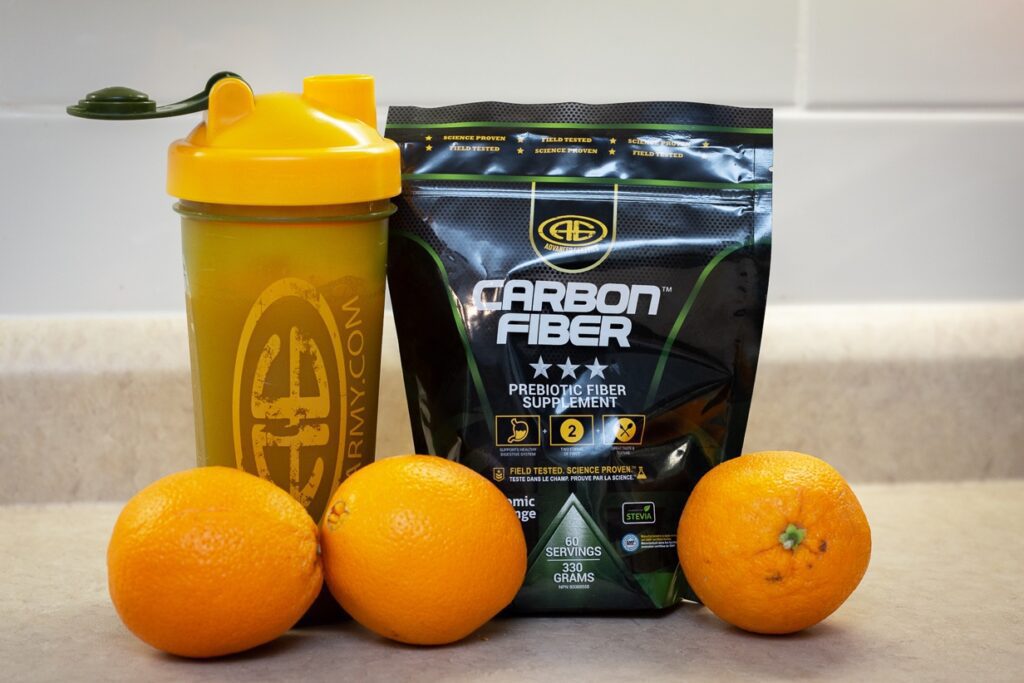
Top 11 Sources of Fiber For a Ketogenic Diet
In attempts to eat the high amounts of fats and moderate amounts of protein required on ketogenic diets while avoiding carbs as much as possible, many keto-dieters all but eliminate fiber-containing vegetables for fear of their carb counts.
Many keto eaters focus solely on animal products (which don’t contain fiber) and fats. “Avocado is one of the few high-fat foods with appreciable amounts of fiber.
The result: Many people forget to (or just don’t) consume low-carb vegetables and, consequently, their fiber intake plummets to unhealthily low levels.
Why? Many dieters don’t understand the difference between starchy vegetables (which are higher in carbs) and non-starchy ones (which are lower in carbs).
While starchy plant foods—like potatoes, beets, and corn— contain too many carbs for the average keto diet, non-starchy ones—like red cabbage, mushrooms, cauliflower, and broccoli—do not.
However, carb-fearing keto eaters often ditch all veggies—and eliminate pretty much all of the fiber their bodies very much need.
Why fiber is a BIG deal
You know all those important healthy bacteria (known as probiotics) in your gut? They feed on fiber.
Fiber helps improve cholesterol levels, colon health, blood sugar levels, and digestion, and is linked to reduced risk of heart and colon disease as well as helps keep your metabolism going!
When following a keto meal plan, it is not uncommon for people to neglect eating quality sources of fiber in an effort to avoid any carbohydrate intake. There is a chance this can lead to constipation, poor digestion, and a lack of certain vitamins and minerals, increased cholesterol levels and slowed metabolism.

What is fiber?
Dietary fiber is a plant-based nutrient that is sometimes called roughage or bulk. It is a type of carbohydrate but, unlike other carbs, it cannot be broken down into digestible sugar molecules. Therefore, fiber passes through the intestinal tract relatively intact. However, on its journey, fiber does a lot of work. The term “dietary fiber” refers to the indigestible parts of plant-based foods.
Fiber aids in the removal of waste via the colon and is important for maintaining healthy digestion. Fiber is categorized as either soluble or insoluble, and each is digested differently.

Taking in fiber on a ketogenic diet
A well-formulated ketogenic diet should not be void of fiber; some may even argue it should provide more fiber than other diets. This is because a well-formulated ketogenic diet should include regular amounts of low-carb vegetables on a daily basis, along with quality sources of fats and protein and should include a fiber supplement (more on this later).
Intriguingly, the fermentation process of insoluble fiber during digestion can also contribute to ketogenesis (i.e. the production of ketones). Fiber is broken down by the gut microbiome into short-chain fatty acids, such as butyrate,1 a molecule that is very structurally similar to the ketone body, beta-hydroxybutyrate. Subsequently, butyrate can be converted to beta-hydroxybutyrate and has been shown to increase blood ketone levels in humans.2
Top 11 sources of fiber for a Keto Diet (from https://perfectketo.com/fiber-keto/)
#1: Chia Seeds
Chia seeds provide calcium, phosphorus, and manganese, as well as omega-3 fatty acids.
An ounce of chia seeds has a mighty 10.6 grams of dietary fiber and 1.7 grams of net carbs.
#2: Flaxseeds
Flaxseeds provide alpha-linoleic acid, an anti-inflammatory omega-3 fatty acid. They also contain plenty of thiamin, magnesium, phosphorus, copper, manganese, and selenium.
Just one ounce of flaxseeds has an incredible 7.6 grams of fiber and 0.5 grams of net carbs.
#3: Avocados
Avocados are one of the top sources of fiber on the keto diet, as well as a perfect source of healthy fats. This fruit is savory, creamy, and loaded with fresh flavor.
A large avocado weighing about 200 grams has a whopping 13.5 grams of dietary fiber and just 3.6 grams of net carbs.
#4: Raw coconut
Coconut is a delicious and versatile food item that offers manganese, zinc, copper, selenium, iron, folate, and phytosterols, plus medium-chain triglycerides and other healthy saturated fats.
One cup (83 grams) of raw, shredded coconut provides an impressive 7.2 grams of dietary fiber and 5 grams of net carbs.
#5: Pumpkin Seeds (Pepitas)
Whole roasted pumpkin seeds, also called pepitas, are an excellent snack item. They are high in protein and fat and also provide zinc, copper, potassium, manganese, and magnesium.
An ounce of pepitas has 3 grams of dietary fiber and 1 grams of net carbs.
#6: Pecans
Pecans are among the lowest of low-carb nuts, and they also provide healthy fats, thiamin, manganese, and copper.
A one-ounce serving of pecans has 2.7 grams of fiber and 1.2 grams of net carbs.
#7: Collard Greens and Other Leafy Greens
Collards and other leafy greens are high in fiber and low in starchy carbs. They’re also packed with folate and vitamins K, A, and C. Most leafy greens like collards and spinach cook down dramatically, so if you want to up your fiber intake more easily, cook your greens.
A 100 gram serving of collard greens has 3.6 grams of dietary fiber and 2.1 grams of net carbs.
#8: Almonds
Along with plenty of fiber, almonds offer vitamin E, riboflavin, calcium, iron, magnesium, potassium, phosphorus, copper, and manganese.
An ounce of almonds has 3.3 grams of fiber and 2.1 grams of net carbs.
#9: Broccoli and Other Cruciferous Vegetables
Cruciferous vegetables like broccoli, cauliflower, and cabbage contain sulforaphane, diindolylmethane, and other cancer-fighting compounds. They’re all high in fiber and relatively low in net carbs.
A small cooked broccoli stalk (140 grams) contains 4.6 grams of fiber and 5.5 grams of net carbs.
#10: Bell Peppers
Bell peppers come in different color varieties like green, yellow, red, orange, and purple Each one varies slightly in its nutritional profile, but all of them are ultra-healthy and loaded with vitamins C and E.
A one-cup (149 gram) serving of chopped raw red bell peppers has 3.1 grams of fiber and 6.3 grams of net carbs.
#11: Mushrooms
Mushrooms are high in potassium and Vitamins C and B, and also help improve your immune function[*].
A cup of diced raw portobello mushrooms (83 grams) contains 1.3 grams of fiber and 3.1 grams of net carbs, while an equivalent amount of raw oyster mushrooms has 2 grams of fiber and 3.6 grams of net carbs.
So why supplement with Carbon Fiber?
All the foods above are Keto friendly fiber rich foods – but as mentioned earlier, it’s difficult for most keto dieters it may be hard for you to take in the amount of fiber necessary, despite adding fiber foods to your diet whilst on a keto diet. The easiest way to ensure you take on enough fiber is to take a prebiotic supplement like Carbon Fiber. This is an obvious solution to a lack of insoluble fiber in the diet. This is an easy supplement to take, one scoop up to three times daily.
Carbon Fiber has a delicious natural orange flavour and isn’t artificially coloured or sweetened so it’s a delight to take each morning and GOOD FOR YOU! Now that you know it tastes great – what’s in it that makes it so good for you? Carbon Fiber has not one but TWO sources of fiber that give all the benefits that your body needs to function properly mentioned above…and ZERO impact carbs.
Psyllium – (3000mg per scoop) a soluble fiber that passes through the digestive system without being completely broken down or absorbed. It is derived from the seeds of Plantago ovata, and herb grown mainly in India. Psyllium is used to treat constipation, diarrhea, lowers blood sugar levels, aids in weight loss, lowers cholesterol levels, improves heart health, and acts as a prebiotic, helping with serious gut conditions like Colitis and Crohn’s.
Inulin – (2000mg per scoop) a powerhouse fiber that the body is unable to digest. It moves through the colon intact and feeds the good bacteria there. Inulin aids digestion by increasing the number of good bacteria in the gut, particularly Bifidobacteria and Lactobacilli. These bacteria help fend off unwanted pathogens (bad bacteria), prevent infection and stimulate the immune system. Inulin may help the body absorb more calcium. Inulin has been shown to be beneficial for people with prediabetes by helping manage blood sugar levels. Research is currently being done to explore the use of Inulin to prevent cancer.
Carbon Fiber is available here on our website or most locations where Advanced Genetics are sold! Ask your local supp shop to bring Carbon Fiber in today! Your gut health will thank you for it!
Monika Mackenzie
Resources:
- Slavin J. Fiber and Prebiotics: Mechanisms and Health Benefits. 2013;5:1417-1435.
- St-Pierre V et al. Butyrate is more ketogenic than leucine or octanoate-monoacylglycerol in healthy adult humans. J Functional Foods. 2017;32:170-275.



